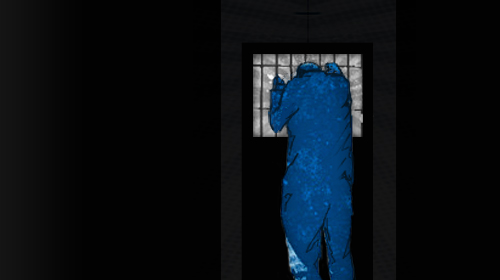
A front page story in Sunday's New York Times, "Rethinking Solitary Confinement," reinforces what the ACLU and human rights activists around the nation have long said: it's time to end the barbarously cruel practice — all too common in the United States — of locking down prisoners in long-term total isolation.
The full-page Times article gives a critical and searching look at the phenomenon. It recaps the history of solitary confinement in the U.S., describes the devastating psychological damage it inflicts and links the soaring use of solitary to the nation's mass incarceration binge over the past two decades. But the article shows that there's good reason now to believe we are at a turning point: cash-strapped states, staggering under the massive fiscal burden of lock-'em-up policies run amok, are beginning to look for alternatives and are finding a new model for reform in Mississippi, of all unlikely places.
The narrative frame for the article is the ACLU's lawsuit, Presley v. Epps, which successfully challenged the use of solitary confinement in Mississippi's notorious supermax and in the process prompted a profound change of heart for Mississippi's two top prison officials. Mississippi's corrections commissioner explains that he found his views changing as he fought the ACLU lawsuit; he "started out believing that difficult inmates should be locked down as tightly as possible, for as long as possible" since "that was the culture, and I was part of it," but by the end of the process he saw things differently and ordered the changes: "If you treat people like animals, that's exactly the way they'll behave."
When Mississippi moved the great majority of its prisoners out of solitary, something extraordinary happened: violence plummeted, and prisoners became better behaved. In 2010 the state permanently shuttered its supermax prison. The Times article stresses that "the transformation of the Mississippi prison has become a focal point for a growing number of states that are rethinking the use of long-term isolation and re-evaluating how many inmates really require it, how long they should be kept there, and how best to move them out." As the article shows, Mississippi is an inspiring model for much-needed change across the nation.
Learn more about solitary confinement: Sign up for breaking news alerts, follow us on Twitter, and like us on Facebook.



